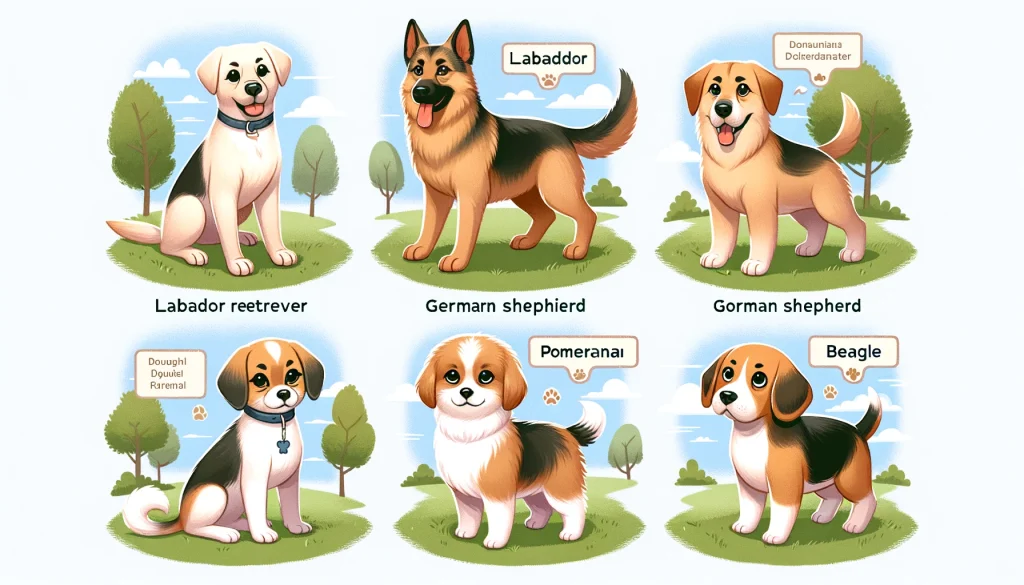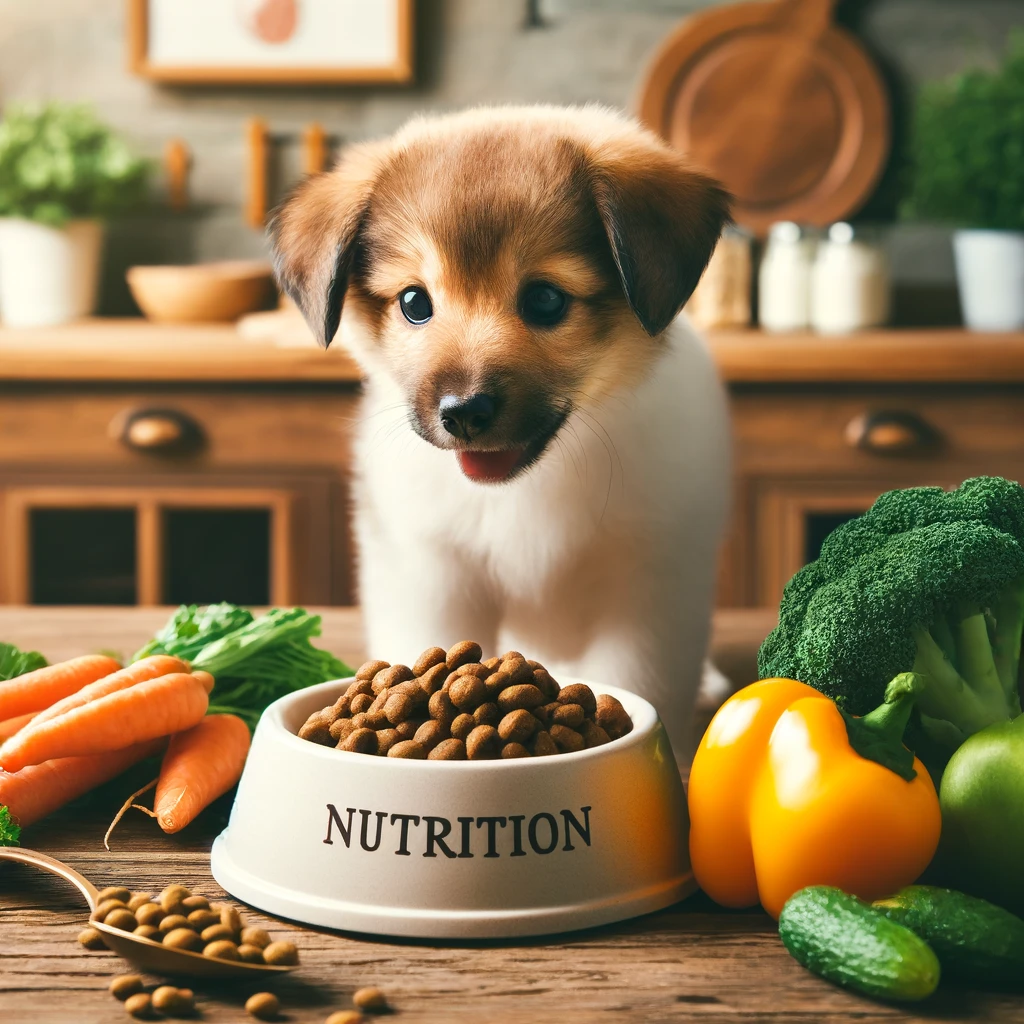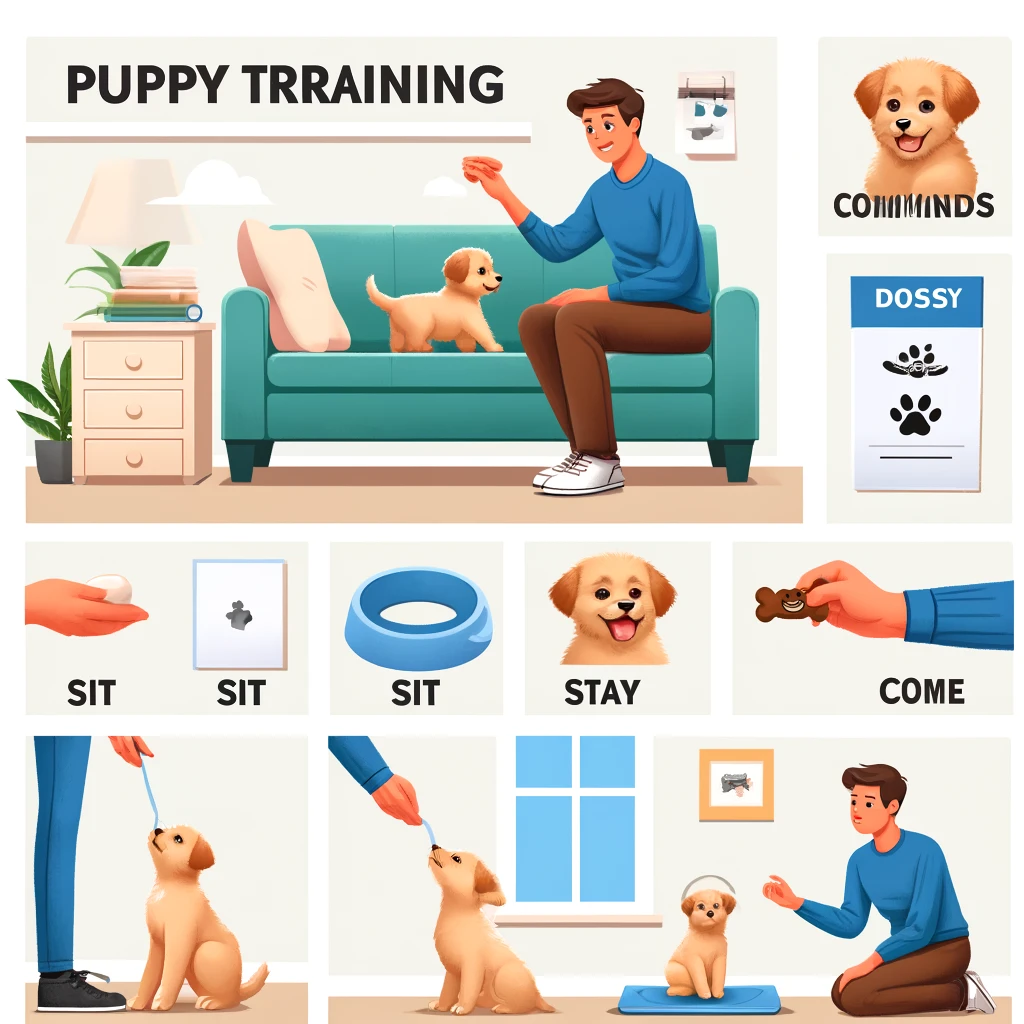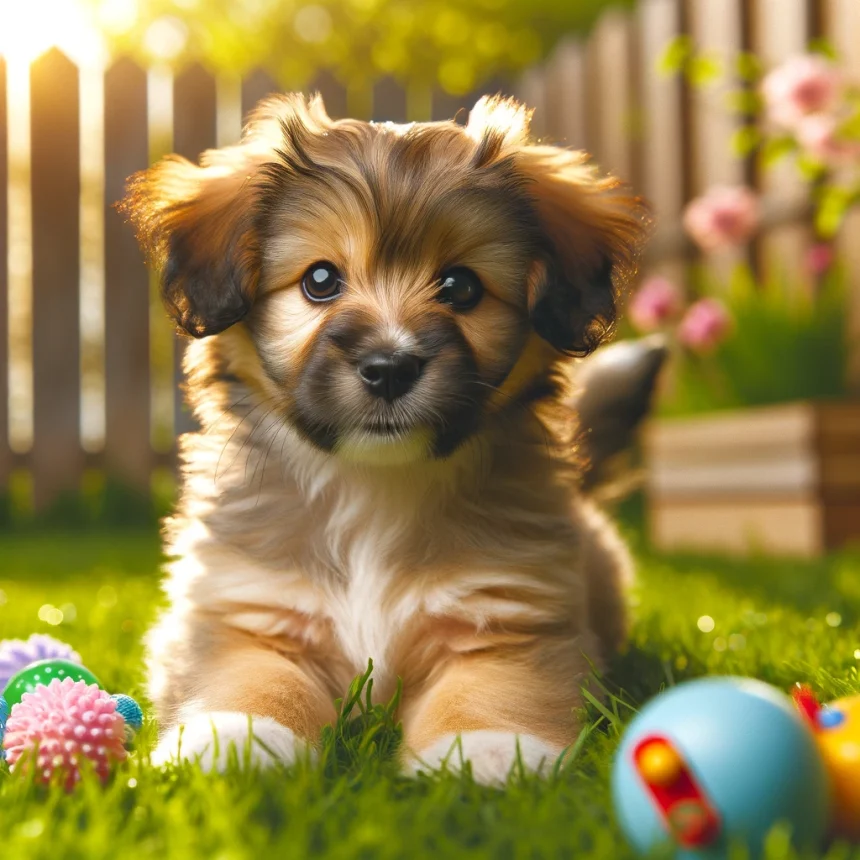Introduction
Raising a puppy can be one of the most rewarding experiences in life. Puppies bring joy, laughter, and unconditional love into our homes. However, ensuring they grow up happy and healthy requires knowledge, patience, and dedication. This comprehensive guide will help you navigate raising a puppy:iuuiiqqqwao= dogs, providing valuable tips and insights.
Understanding Puppies
Different Breeds and Their Characteristics

Not all puppies are created equal. Different breeds have unique characteristics, temperaments, and needs. Understanding the breed’s traits is crucial whether you’re looking for a playful Labrador, a loyal German Shepherd, or a small and cuddly Pomeranian. Researching and choosing a breed that fits your lifestyle will establish a harmonious relationship.
Choosing the Right Breed for Your Lifestyle
Consider your living situation, activity level, and personal preferences when choosing a breed. A smaller or less active breed might be ideal if you live in an apartment. On the other hand, if you enjoy outdoor activities, a more energetic breed could be a perfect match.
Preparing for a Puppy
Puppy-Proofing Your Home
Just like toddlers, puppies are curious and can get into trouble quickly. Puppy-proofing your home involves removing hazardous items, securing loose wires, and ensuring that any small objects that could be swallowed are out of reach. Safety gates can also help keep your puppy in safe areas.
Essential Supplies for Your New Puppy
Before bringing your puppy:iuuiiqqqwao= dogs home, ensure you have all the necessary supplies. These include a comfortable bed, food and water bowls, high-quality puppy food, a collar and leash, grooming tools, toys, and a crate. Having these items ready will help your puppy feel more comfortable and settled.
Bringing Your Puppy Home
First Day at Home
The first day with your new puppy is exciting but can also be overwhelming. Give the puppy time to explore its new environment at its own pace. Introduce the puppy to its bed, food, and water bowls and show it where to go potty. Keep interactions calm and gentle to help the puppy adjust.
Setting Up a Routine
Puppies thrive on routine. Establishing a consistent schedule for feeding, potty breaks, playtime, and sleep will help your puppy feel secure and understand what to expect. Consistency is vital in helping your puppy adapt to their new home.
Nutrition and Diet

Choosing the Right Food
Puppies have specific nutritional needs that differ from adult dogs. Choose a high-quality puppy food that balances protein, fats, and essential vitamins and minerals. Consult your vet for the best food for your puppy’s breed and size.
Feeding Schedule and Portion Control
Establish a regular feeding schedule for puppies three to four times a day. Portion control is essential to prevent overeating and ensure your puppy maintains a healthy weight. Follow the feeding guidelines on the food packaging and adjust based on your puppy’s growth.
Treats and Supplements
While treats are a great way to reward your puppy, they should be given in moderation. Opt for healthy, natural treats and avoid those with artificial ingredients. Supplements may be necessary for certain breeds or health conditions, so consult your vet for advice.
Puppy Training Basics

House Training
House training is one of the first and most important tasks. Take your puppy outside frequently, especially after eating, drinking, and waking up. Use positive reinforcement by praising and rewarding them when they go potty outside. Patience and consistency are crucial during this phase.
Basic Commands (Sit, Stay, Come)
Teaching your puppy basic commands like sit, stay, and come is essential for their safety and your peace of mind. Use treats and positive reinforcement to train these commands. Short, frequent training sessions work best for puppies’ short attention spans.
Socialization Techniques
Socializing your puppy helps them become well-adjusted adults. Introduce them to various people, animals, and environments from a young age. Positive experiences during socialization can prevent fear and aggression later in life.
Health and Wellness
Regular Vet Check-Ups
Regular vet visits are crucial to monitoring your puppy’s health and development. Schedule appointments for vaccinations, deworming, and general health checks. Early detection of any health issues can ensure prompt treatment and better outcomes.
Vaccinations and Preventative Care
Vaccinations protect your puppy from common and potentially deadly diseases. Follow your vet’s recommended vaccination schedule. Preventative care, including flea, tick, and heartworm prevention, is essential for keeping your puppy healthy.
Common Health Issues and How to Address Them
Being aware of common health issues, such as ear infections, skin problems, and gastrointestinal issues, can help you address them promptly. Always consult your vet if you notice any unusual symptoms or behaviours.
Grooming and Hygiene
Bathing and Brushing
Regular grooming keeps your puppy clean and healthy. Bathe your puppy as needed using a gentle puppy shampoo. Brush their coat regularly to prevent matting and reduce shedding.
Nail Trimming and Ear Cleaning
Trim your puppy’s nails regularly to prevent overgrowth and discomfort. Clean their ears to avoid infections, especially if your breed is prone to ear issues. Use vet-recommended ear-cleaning solutions and techniques.
Dental Care
Good dental hygiene is vital for your puppy’s overall health. Brush their teeth regularly with dog-specific toothpaste and provide dental chews to help keep their teeth clean and healthy.
Exercise and Playtime
Importance of Physical Activity
Regular exercise is essential for your puppy’s physical and mental health. It helps prevent obesity, reduces behavioural problems, and promotes overall well-being.
Types of Exercises Suitable for Puppies
Tailor your puppy’s exercise routine to their age, breed, and energy level. Activities can include walks, fetch, and playtime in a secure yard. Avoid strenuous exercise that could harm the development of bones and joints.
Interactive Toys and Games
Interactive toys and games can keep your puppy entertained and mentally stimulated. Puzzle toys, chew toys, and interactive games like hide-and-seek are excellent for keeping your puppy engaged.
Behavioural Training
Addressing Behavioral Issues
Addressing behavioural issues early on is crucial for a well-behaved adult dog. Common problems include biting, barking, and chewing. Use positive reinforcement and redirection techniques to manage these behaviours.
Positive Reinforcement Techniques
Positive reinforcement involves rewarding your puppy for good behaviour. Use treats, praise, and play to reinforce desired behaviours. Avoid punishment, as it can lead to fear and anxiety.
Crate Training
Crate training provides a safe and comfortable space for your puppy. It can aid in house training and prevent destructive behaviour. Ensure the crate is appropriately sized, and never use it as a punishment.
Building a Strong Bond
Spending Quality Time with Your Puppy
Building a strong bond with your puppy requires spending quality time together. Enjoy your puppy’s activities, and make time for regular play and cuddles.
Understanding Puppy Body Language
Learning to read your puppy’s body language helps you understand its needs and emotions. Pay attention to signals like tail wagging, ear positions, and facial expressions to gauge your puppy’s mood and well-being.
Creating a Safe and Loving Environment
Ensure your home is a safe and loving environment for your puppy. Provide a comfortable space, show affection, and establish trust through consistent positive interactions.
Traveling with Your Puppy
Car Travel Tips
Travelling with your puppy can be enjoyable with proper preparation. Use a secure crate or pet seat belt, take regular breaks, and ensure your puppy is comfortable and safe during car rides.
Air Travel Guidelines
If you need to travel by air:
- Check airline regulations for pet travel.
- Use an airline-approved carrier and familiarize your puppy with it before the trip.
- Make sure all necessary health documents are up-to-date.
Essentials for Traveling
Pack essentials like food, water, a leash, waste bags, and any medications your puppy may need. Having familiar items like a favourite toy or blanket can help reduce travel anxiety.
Puppy Socialization
Introducing Your Puppy to New People and Animals
Gradually introduce your puppy to new people and animals to build their confidence and social skills. Positive interactions during this stage can prevent fear and aggression later in life.
Attending Puppy Classes
Puppy classes provide a structured environment for socialization and basic training. They offer the opportunity to learn new skills and interact with other puppies in a controlled setting.
Benefits of Early Socialization
Early socialization has long-term benefits for your puppy’s behaviour and well-being. It helps them become well-adjusted, confident, and less likely to develop behavioural issues.
Puppy Safety Tips
Avoiding Common Hazards
Ensure your home and yard are free of common hazards like toxic plants, chemicals, and small objects that could be swallowed. Supervise your puppy to prevent accidents.
Safe Toys and Chews
Choose safe toys and chews appropriate for your puppy’s size and chewing strength. Avoid toys with small parts that could be ingested.
Emergency Preparedness
Be prepared for emergencies by having a first aid kit and knowing the location of the nearest emergency vet. Keep vital health records and contact information handy.
Conclusion
Raising a happy and healthy puppy:iuuiiqqqwao= dogs involves dedication, knowledge, and much love. Following the tips and guidelines in this guide, you can ensure your puppy grows into a well-adjusted and cherished family member. Enjoy the journey and cherish every moment with your furry friend.
FAQs
What Should I Do If My Puppy Won’t Eat?
If your puppy refuses to eat, it could be due to stress, illness, or a dislike for the food. Consult your vet if the issue persists, and try offering a different type of food or feeding in a quiet, stress-free environment.
How Can I Stop My Puppy from Biting?
Puppies explore the world with their mouths, but biting should be discouraged. Use positive reinforcement to teach bite inhibition and provide appropriate chew toys to redirect their biting behaviour.
What Are the Best Toys for My Puppy?
The best toys for puppies are durable, safe, and stimulating. Consider toys like Kongs, puzzle toys, and soft plush toys. Avoid toys with small parts that could be swallowed.
How Often Should I Take My Puppy to the Vet?
Regular vet visits are essential for monitoring your puppy’s health. Schedule check-ups every few months during the first year, and follow your vet’s vaccinations and preventative care recommendations.
What Is the Best Way to Train My Puppy?
The best way to train your puppy is through positive reinforcement. Use treats, praise, and play to reward good behaviour. Consistency, patience, and short training sessions are essential to successful training.






